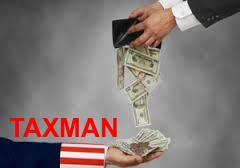A dividend is a payment made by a corporation to its shareholders, usually as a distribution of profits. When a corporation earns a profit or surplus, it can re-invest it in the business (called retained earnings), and pay a fraction of the profit as a dividend to shareholders. A dividend is allocated as a fixed amount per share, with shareholders receiving a dividend in proportion to their shareholding.

When it comes to taxation of dividend, taxpayers shall note the changes which shall be effective from 1st April, 2016.
Till 31st March, 2016
The company declaring dividend will have to pay tax at the rate of 15%. This rate will also apply to dividends that are distributed by domestic company from the profits earned by its subsidiary that happens to be a foreign company.
For shareholders– Dividend received is exempt from tax.
From 1st April, 2016
The company declaring dividend will have to pay tax at the rate of 15%. This rate will also apply to dividends that are distributed by domestic company from the profits earned by its subsidiary that happens to be a foreign company.
For shareholders– Investors (Individuals, HUF, and Firms) receiving dividend in excess of Rs 10 lakh per annum shall pay tax at the rate of 10% of gross amount of dividend in addition to applicable DDT.
Impact
The controversy here is that dividend is nothing but the part of the profit of the company. The profit is the income of the company and a tax is paid on that income. Again, when the dividend is paid to the shareholder that is paid from PROFIT AFTER TAX, a dividend tax is levied and so there is double taxation on the same income.
From 1st April, 2016, this double taxation will change to TRIPLE TAXATION. Now, even the shareholders receiving the dividend will pay tax on the same.
For any assistance visit taxmantra.com.
_____________________________________________________________________________________________

 Toll Free:
Toll Free:  Contact Us
Contact Us

